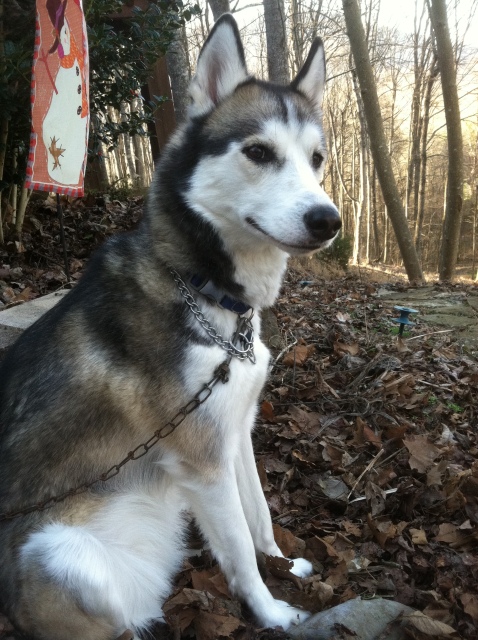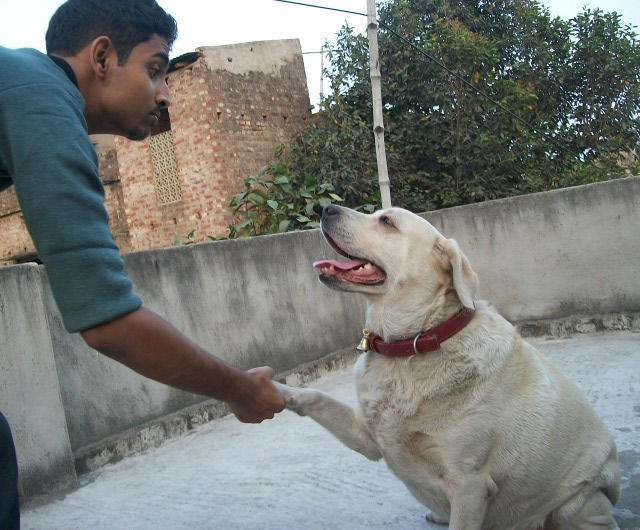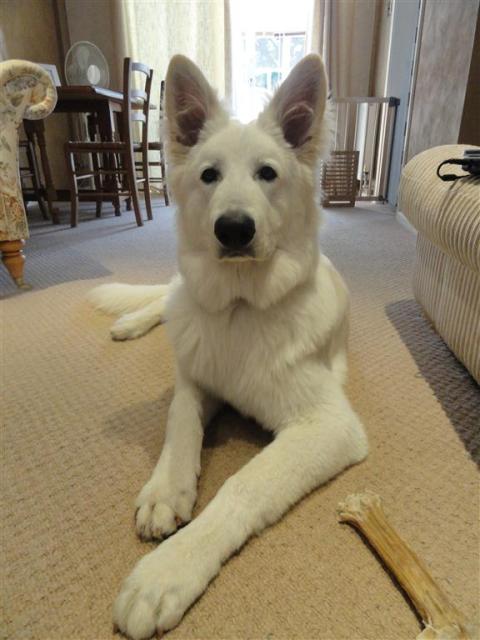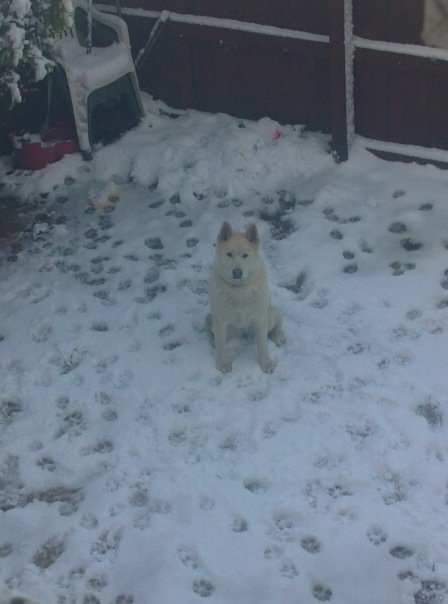QuestionMy 13month old alaskan malamute boy is attacking my 4yr old alaskan malamute girl. He has left her with several very deep puncture wounds and it took us at least 10mins to seperate them it seems to be him that starts the fight and it is his jaws that are locked on her neck each time. I have seperated them for now but i cannot keep this up forever. Is it unusual for a dog to attack a bitch? they were both ok with each other until he reached 11mnths the fights start whenever they have to pass each other,i am very careful not to drop food or leave toys around. they have always slept in different rooms. However while out on a walk they are more relaxed and can even play together! Please help.
AnswerHello Donna:
I am so sorry to hear you are having problems.
Your male has probally reached Maturity and trying to take over as lead dog.
If he is not Neutered yet I would suggest that as a strating point to reduce the testoserone, (it will take a few months to dissapte).
In the mean time work on your leadership skills. (why they are better on a walk is probally due to the leadership of the walk).
Lots of excerise will help drain some excess energy, which is what most problems can be related too.
You do not mention his behaviour around other dogs, so knowing this would be of some help.
Dogs like people just do not get on with every one, so there may be some of this at play.
Remember that dogs are predators and descendants of the wolf and still show posses' instincts, and behaviour traits that is normal for the dog pile. Thus, growling, snarling, baring teeth, snapping and biting is a part of dog communication. Although aggressive dog behaviour is normal for a dog, it is unacceptable toward humans.
For a dog, there is always a reason for aggressive behaviour. Because humans and dogs have different communication systems, misunderstandings can occur between them.
A person may intend to be friendly, but a dog may perceive that persons behaviour as threatening or intimidating.
Your dog is not psychotic, crazy, or vicious when displaying aggressive behaviour. The most common reason for aggressive dog behaviour is instability in the dominance hierarchy of the dog pack, your family.
Dominant Aggressive Dog Behaviour:
Dominant aggressive behaviour is motivated by a challenge to a dogs social status in the pack, or to control a social interaction.
Dominant aggressive dogs defend their food, dog toys, or other valued objects. Whatever the reason, and whatever the object, the point is that the guarded object is of significance to the dog, and he is willing to fight for it. Even toward you, his owner.
Fear Aggressive Dog Behaviour:
Fear-aggressive dog behaviour is a defensive reaction and occurs when a dog believes he is in danger of being harmed. It is your dogs perception of the situation, not your actual intent, which determines your dogs response. For example, you may raise your arm to throw a toy, but your dog distinguishes this as a threat and may bite you, because the dog wants to protect himself from being hurt.
Protective and Territorial Aggressive Dog Behaviour:
Territorial aggressive dog behaviour is usually associated with defence of property.
Protective aggressive behaviour usually is directed toward people or animals that a dog perceives as threats to his pack. Territorial aggressive dog behaviour includes territorial investigation, territorial marking (urine, scratch marks, etc.), and defensive and offensive territorial aggression.
Redirected Aggressive Dog Behaviour:
A common example occurs when two family dogs become excited, bark, and growl in response to another dog passing by outside their place. (outside the car, outside the restaurant...) The two dogs, confined behind a "wall", may turn and attack each other because they cannot attack the intruder. Predation is usually considered as a unique kind of aggressive dog behaviour, because it is motivated by the intent to obtain food, and not primarily by the intent to harm or intimidate.
Pain Induced Aggressive Behaviour:
This is a natural form of aggressive dog behaviour in the pack that occurs when a dog experiences or is threatened with pain, or physical punishment, for defending itself from being hurt or attacked.
Aggressive dog behaviour is very complex and potential consequences are serious.
Punishment will not help - it makes the problem worse
Punishing a Fear Biter will make him more fearful, and therefore a more aggressive dog. Attempting to punish a dominant aggressive dog is likely to cause him to escalate his behaviour in order to retain his dominant position. This might result in a severe attack. Punishing a territorial, possessive, or protective aggressive dog is likely to elicit additional defensive aggression.
Seek professional help.
An aggression problem will not go away by itself. Working with aggressive dogs requires an animal behaviour specialist who understands animal learning theory and behaviour.

 Is putting my dog in a cage a good form of punishment?
Question
Blue
My Siberian husky, Blue, as been b
Is putting my dog in a cage a good form of punishment?
Question
Blue
My Siberian husky, Blue, as been b
 dealing with a blind 5yr old Cavalier
Question
Skipper
I have a lovely, 5 yr old Caval
dealing with a blind 5yr old Cavalier
Question
Skipper
I have a lovely, 5 yr old Caval
 5 yr old lab fetch problem!
Question
handshake
Hello.I am Rameez from India
5 yr old lab fetch problem!
Question
handshake
Hello.I am Rameez from India
 Barking at strangers
Question
Kupe
We have a 7 month old (not neutered) male
Barking at strangers
Question
Kupe
We have a 7 month old (not neutered) male
 Dog Training And Punishment?
Question
Maya
hi there i have an akita X husky,
Dog Training And Punishment?
Question
Maya
hi there i have an akita X husky,